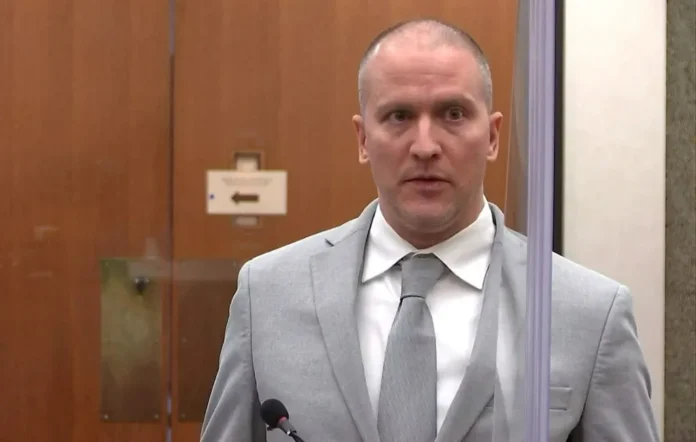As the fifth anniversary of George Floyd’s death looms, Minnesota Governor Tim Walz has found himself at the center of a firestorm over speculation that he might consider a pardon for Derek Chauvin, the former Minneapolis police officer convicted of Floyd’s murder. On May 14, 2025, Walz firmly dismissed these rumors, emphasizing that Chauvin would remain behind bars serving his 22.5-year state sentence, regardless of any federal pardon from President Donald Trump. “If Trump issues that pardon, we’ll transfer Chauvin to a Minnesota prison,” Walz declared, calling the idea of clemency “highly unlikely” and racially charged. This statement comes as conservative figures, including Rep. Marjorie Taylor Greene, amplify calls for Chauvin’s release, stirring fears of unrest in Minneapolis. Let’s unpack this complex issue, diving into the latest developments, public reactions, and what it means for Minnesota.
Why the Tim Walz Pardon Derek Chauvin Rumor Started
The chatter about a possible pardon began earlier this year when right-wing influencers like Ben Shapiro and Charlie Kirk launched campaigns claiming Chauvin was “unjustly convicted.” By May 2025, these voices grew louder, with Greene posting on X, “I strongly support Derek Chauvin being pardoned and released from prison.” This push gained traction after Trump pardoned two D.C. officers convicted in a 2020 killing, sparking speculation he might extend clemency to Chauvin’s federal sentence. However, Walz and Attorney General Keith Ellison have been unequivocal: a federal pardon wouldn’t free Chauvin. Ellison noted, “He still owes Minnesota 22.5 years.” Minneapolis officials, including Mayor Jacob Frey and Community Safety Commissioner Toddrick Barnette, are bracing for potential unrest, with the Minnesota National Guard on alert as the anniversary of Floyd’s death approaches.
| Key Facts on Chauvin’s Case | Details |
|---|---|
| Conviction Date | 2021 |
| State Sentence | 22.5 years |
| Federal Sentence | 21 years (concurrent) |
| Current Location | Federal Correctional Institution, Big Spring, Texas |
| Pardon Impact | Federal pardon would transfer Chauvin to Minnesota state prison |
Tim Walz Pardon Derek Chauvin: Public and Political Reactions
The idea of pardoning Chauvin has ignited a polarized response. On one side, MAGA supporters argue Floyd’s death resulted from a drug overdose or heart condition, not Chauvin’s actions, despite medical evidence and court rulings proving otherwise. Posts on X reflect this sentiment, with users like @MAGAUS444 celebrating the possibility of a pardon, claiming Chauvin was a “pawn” in a rigged trial. Conversely, civil rights advocates, including Black Lives Matter’s Nekima Levy Armstrong, warn that such a move would deepen distrust in the justice system. George Floyd’s girlfriend, Courteney Ross, called the pardon push “ridiculous” on MSNBC, while his brother Terrance condemned it as disrespectful. Walz himself labeled the campaign racist, stating, “It’s about disrespecting George Floyd’s memory.”
What’s Next for Minnesota?
As Minneapolis prepares for the May 25 anniversary, the city is on edge. Authorities are coordinating with the National Guard and local law enforcement to prevent a repeat of the 2020 protests that caused $2 billion in damages. Walz’s proactive stance—acknowledging Trump’s constitutional right to pardon while ensuring Chauvin remains incarcerated—aims to calm tensions. Yet, the governor faces a delicate balancing act. He must reassure a grieving community while navigating a political landscape where conservative voices are amplifying divisive narratives. The White House, through Press Secretary Karoline Leavitt, has downplayed pardon rumors, noting Trump isn’t currently considering it. Still, with influential figures like Elon Musk and Tim Pool backing the pardon, the issue isn’t fading anytime soon.
Read Also-Nicoline Artursson Steps Into the Spotlight Amid Controversy
A Call for Unity Amid Division
This controversy underscores a broader challenge: how to heal a nation still scarred by Floyd’s death. Walz’s rejection of the Tim Walz pardon Derek Chauvin narrative is a step toward accountability, but it’s not enough. Community leaders are urging dialogue over division, with Armstrong advocating for renewed focus on police reform. As we approach the anniversary, Minnesotans are left asking: can justice prevail without reigniting old wounds? The answer lies in leadership that listens, learns, and acts with courage. For now, Walz’s firm stance offers hope that Chauvin will serve his time, but the road to reconciliation remains long and fraught.
